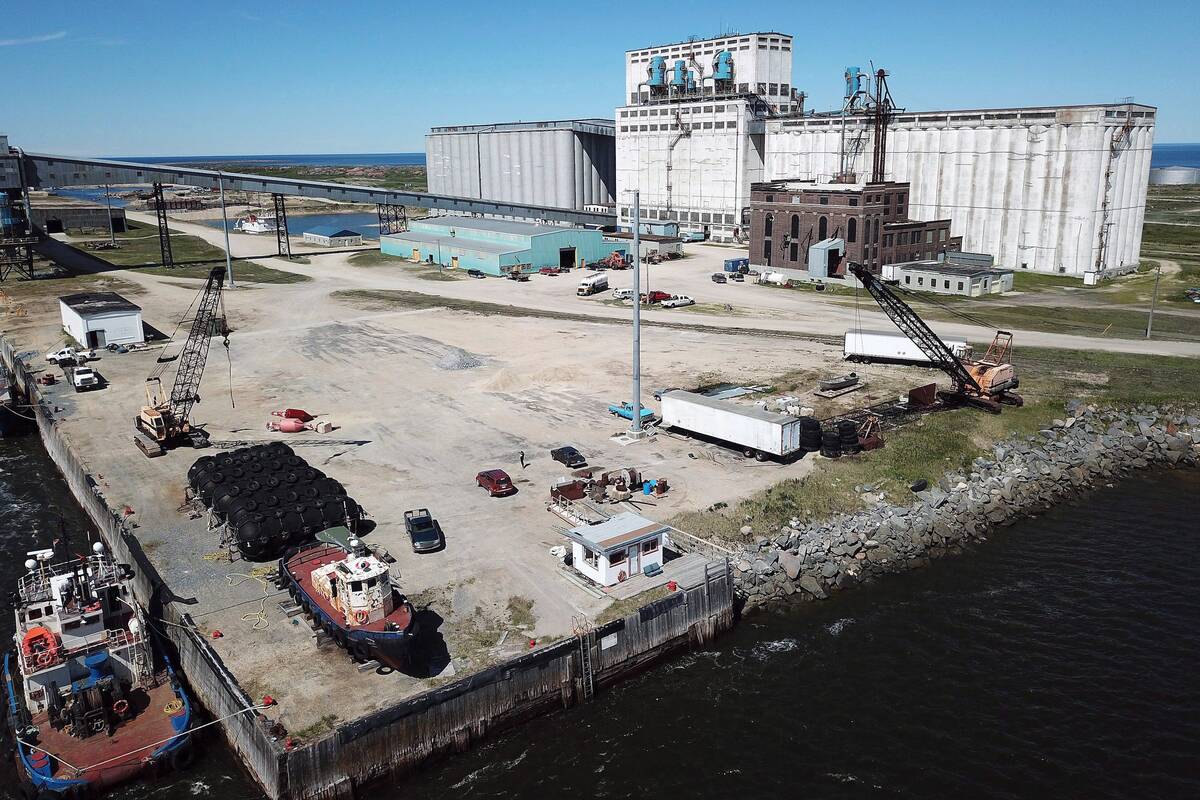A second legal complaint has been filed alleging the railways provided inadequate grain-shipping service this crop year. And more might be coming.
The Canadian Canola Growers Association (CCGA) filed a level-of-service complaint with the Canadian Transportation Agency (CTA) May 26, accusing both Canadian Pacific and Canadian National railways of failing to fulfil their common carrier obligations for the movement of western Canadian grains and oilseeds this crop year.
“What we’re saying to the CTA is they (railways) didn’t even come close,” CCGA CEO Rick White said in an interview May 26. “They didn’t do it on a weekly basis. They didn’t do it on monthly basis and they are not even going to do it on a yearly basis this year. We’re going to end up with a 23-million-tonne carry-out, (which is) totally unacceptable to farmers. That’s why we’re launching this.”
Read Also

Air, land and sea join forces as Manitoba launches Arctic trade corridor plans
Manitoba wants to take its Arctic trade routes to the big leagues. The Port of Churchill, CentrePort Canada and Winnipeg airport have all raised their hands to help it happen.
Louis Dreyfus Commodities filed a level-of-service complaint against CN April 16.
Other grain companies are considering filing complaints with the CTA, a quasi-judicial agency, said Western Grain Elevator Association (WGEA) executive director Wade Sobkowich.
“Poor rail service has a very direct and real impact on grain farmers, so it stands to reason that they would consider taking action,” Sobkowich said. “Many grain companies are also considering their options at this time. We’ve already seen one company file a level-of-service complaint and it’s possible others will be moving forward as well.”
- More from the Manitoba Co-operator: Canola Growers file service complaints on CN, CP
Unfilled orders
As of last week, there were 63,000 unfilled grain car orders, peaking at 78,000 cars in mid-April, Sobkowich said.
The backlog is estimated to have cost Canada’s grain industry, including farmers several billions of dollars due to lower grain prices, lost sales, contract penalties and demurrage.
The railways blamed the backlog on a colder-than-normal winter and a record 76-million-tonne western Canadian crop.
“This situation is about a 100-year crop and the worst winter in decades, not about a level-of-service failure by CN,” CN spokesman Mark Hallman said in an email. “CN is moving record grain volumes so far this crop year and has fared better than all other railroads during this difficult winter. The… association’s complaint is unfounded and ill advised. CN is a backbone of the economy and a true supply chain enabler with an agenda that is aligned with customers. CN will vigorously defend its record and reputation in front of the CTA.”
A CP spokesman declined to comment.
The railways aren’t investing in increased capacity because grain is captive, according to White. As a result railways eventually get most of the business while keeping costs down to maximize shareholder returns.
“But they have a statutory obligation to move the crop that is coming, not the five-year trailing average,” he said. “If we have this logistics system on five-year averages we are not going anywhere as an industry.”
The 120-day CTA process will be expensive, White said.
“We think we have a decent case and… with a favourable ruling this could be the long-term fix farmers have been demanding,” he said.
Expensive exercise
The CCGA already has the moral support of other farm groups, but isn’t expecting them to help pay the bill, White said.
“We’ve rolled up our sleeves and will do what needs to be done here to stand up for the rights of growers,” he added. “We’re going to see it through to the end.”
In March, the government ordered the railways to move a million tonnes of grain a week. That’s still not enough, said White, who said a record 23-million-tonne carry-over is expected July 31.
“We’re in trouble this year with even a moderate or average crop starting with a system already plugged with 23 million tonnes of grain,” he said. “We’re in trouble right now.”
The former Canadian Wheat Board filed a level-of-service complaint April 14, 1997 against CN and CP Rail accusing both of failing to provide adequate service during the winter of 1996-97.
CN reached an out-of-court settlement with the wheat board.
The CTA ruled in the wheat board’s favour Sept. 30, 1998. The board then used the findings in a lawsuit again CP Rail.
The wheat board sought $45 million in compensation from CP, but reached an out-of-court settlement for $15 million.


















